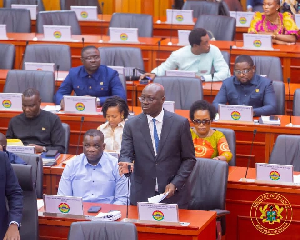Even as COCOBOD has assured that it is still on course to source this year’s version of its annual receivables-backed international syndicated loan to finance 2020/21 crop season cocoa purchases from local farmers – despite an inevitable fall in enthusiasm from lenders due to the effects of the COVID 19 outbreak – the Board is having to turn its efforts to negotiating a viable interest rate for the facility.
COCOBOD has refuted recent media reports that international lenders have pulled back from the 2020/2021 cocoa syndication loan citing Covid-19 risks.
The CEO of COCOBOD, Joseph Boahen Aidoo has indicated that COCOBOD has fully paid its 2019/2020 loan facility as at June 2020, three months ahead of schedule as evidence of the Board’s continued attractiveness to lenders, even in this time of COVID 19.
But there is a strong possibility that it may have to accept a significantly higher than usual interest rate for this year’s facility as potential lenders cite higher than usual credit risks.
COCOBOD usually borrows at a relatively cost on the international market. But due to the perceived increase in the credit risk this year, many investors are demanding for a much higher rate. This, some experts have warned, would be inimical to the margins that would accrue to COCOBOD at the end of the season.
The timing of this problem is unfortunate – the institution is currently involved in efforts to repair its finances that have been damaged by years of financial shortfalls caused by the subsidies and support services it gives farmers.
Cocobod in past years has financed its purchases from local cocoa farmers through syndicated loans at interest rates set at a margin above the London InterBank Offered Rate (Libor) which is a benchmark rate that some of the world’s leading banks charge each other for short-term loans.
Because of COCOBOD’s outstanding repayment record it is able to borrow at a spread of between 0.60 – 1.00 percent above Libor. This has translated to barely half of the interest rate demanded by investors on Eurobond issues by the Government of Ghana itself. At this time last year 12 month LIBOR averaged 2.371 percent.
However although monetary easing all around the world, to stave off the adverse economic effects of COVID 19, has reduced 12 month average LIBOR to just 1.2 percent currently, lenders are demanding a much wider spread over it because of much higher perceived credit risk.
COCOBOD’s negotiating stregth is further weakened by the current continuous backwardation position being adopted on the international cocoa futures market – out of fears of possible supply disruptions – which is also adversely affecting Ghana’s ability to sell the commodity at a premium.
The current market situation has made the price outlook for the cocoa futures market murky.
Market analysts have warned that since the syndicated cocoa loans have been an integral part of financing for COCOBOD for decades, without it, COCOBOD will most likely not have a suitable option to finance the next cocoa season purchases – although it also borrows partly from the local bond market the volumes are far lower than those needed for cocoa purchases and indeed are basically used simply to refinance its ongoing structural debt.
Besides,the syndicated loan is not only critical to the cocoa sector but also serves as a major source of foreign exchange to Ghana’s economy; domestic borrowing would blow a hole in Ghana’s forex inflows profile until actually cocoa export proceeds are actually received, a situation which the economy cannot withstand.
Business News of Friday, 26 June 2020
Source: goldstreetbusiness.com













